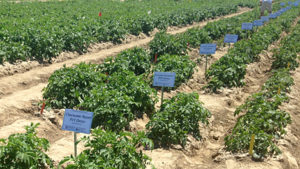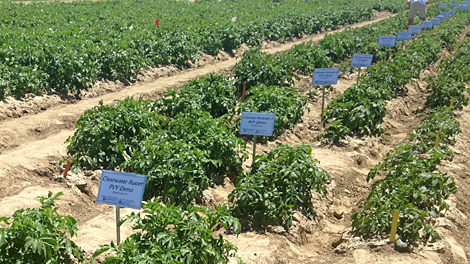Four new projects focused on Wisconsin groundwater are underway on university campuses, as of July 1, as well as a continuing one. The work is funded by the University of Wisconsin Water Resources Institute (WRI).
“We look forward to the findings from this latest group of projects that address emerging issues,” said Jim Hurley, WRI director. “Each project advances our understanding of Wisconsin’s buried treasure, our groundwater.”
The projects will:
-Investigate in-season cover crops for reducing nitrate loss to groundwater below potatoes. Kevin Masarik at the University of Wisconsin-Stevens Point will lead the project. His colleague Jacob Prater on that campus will also participate in the exploration that will inter-seed the crops and assess the positive and/or negative interactions on potato yield, quality and ease of harvest.

-Formulate a cost-function analysis of Wisconsin water utilities to place a value on groundwater. James Price is this investigator, based at the School of Freshwater Sciences, UW-Milwaukee.
-Conduct further research on the issue of arsenic in southeastern Wisconsin groundwater. Eric Stewart, bedrock geologist at UW-Madison, will correlate bedrock fold and fractures with the detection of this naturally occurring but carcinogenic chemical in drinking water.
-Provide insight into the sources of salinity associated with radium and strontium in the parts of the aquifer underlying eastern and northeastern Wisconsin. The study will provide an understanding of the movement of these contaminants to municipal wells. UW-Madison’s Matt Ginder-Vogel is the principal investigator and he has pulled onto the team Patrick Gorski and Sean Scott, both with the Wisconsin State Laboratory of Hygiene.
-As part of a project that kicked off in 2019, Sarah Vitale, and co-investigator J. Brian Mahoney at UW-Eau Claire and Anna Baker with the U.S. Geological Survey Upper Midwest Water Science Center, are investigating naturally occurring phosphorus in western Wisconsin surface and ground waters.




